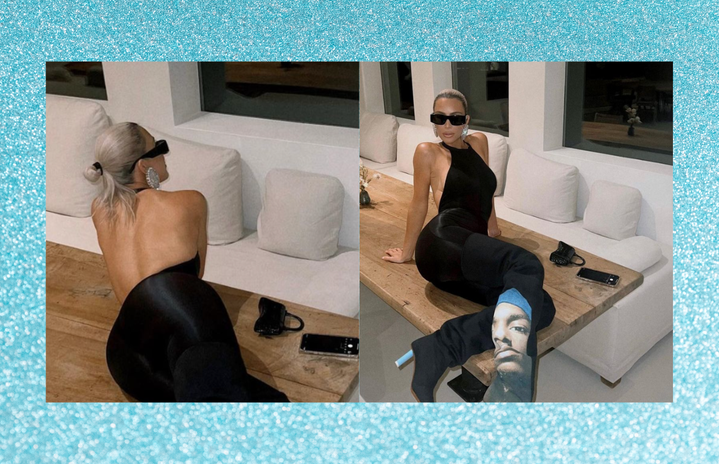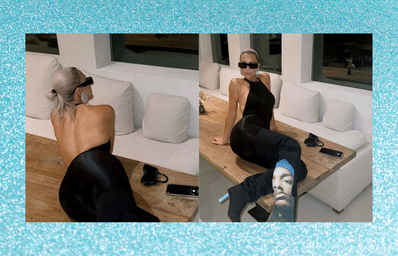The infamous Y2K style has been a lumbering beast whose footsteps were heard long before spotting in the minds of Gen Z influencers. In fact, before the pivot to those low-rise jeans and mini-skirts that Paris Hilton would be proud of, many style guides had tipped Y2K as the next cycle in fashion with more than a hint of concern. Those who weren’t around to experience it first-hand (myself included) have had our fair share of millennial warnings around the 2000’s overuse of chunky belts and scarf tops. Now, after a year of influence and a summer full of maxi skirts, I’m sure there are questions as to why this revival is still under fire, and why it warrants more coverage.
Simply put, the celebration of noughties fashion cannot exist without simultaneously celebrating the noughties beauty standards.
The first warning sign, according to many outspoken fashion blogs and TikTok channels such as Aleska Servian, came when the Kardashian’s famous BBLs began to disappear. The rise of Kim K and her family as trend setters back in 2014 began a chain reaction in Pop Culture that opposed the standards of beauty which ran rampant in the previous decade; the ‘size 0’ body type was traded in for exaggerated curves that were even more exclusive. This, much like the return to 90’s fashion, wasn’t a celebrated change — this new ideal body type for women increased the number of Brazilian butt lifts surgeries by 77.6% post 2015, according to a 2020 study by the International Society of Aesthetic Plastic Surgery. Many criticised this trend for the creation of fake bodies, but influencers like Aleska aren’t as quick to caution the Kardashian’s effect. Instead, she claims the switch in beauty standards came with a large sigh of relief, stating that “it paved the way for a self-acceptance of natural curves.” This is only a half truth, whilst it has created a space for women with curvier bodies to thrive, it has simultaneously pressured women into artificially mimicking this defined shape.
Many ‘it girls’ have (perhaps unintentionally) followed the Kardashian’s example and received an equal amount of success — exemplified by the praise of Bella Hadid, who was a key influence on the return to low rise jeans and Y2K culture. The public continues to express a deep fascination with her weight loss and seemingly linked success as a supermodel. The public’s obsession with these figures relates directly to their body types — understandably, influencers worry that the return to low rise means the return to 11-line abs and dieting that became a staple of 90’s eating disorder culture.
The recent weight loss of both Khloe and Kim Kardashian hints at an end to this change of heart and the start of a new dieting crisis. The fashion world seems to have followed this change in trend, first noted during the rise of the miu miu mini skirt and has become ever more convincing due to the popularity of the Urban Outfitters cargo trousers (a more affordable and global example of the 00’s revival). The end of the summer brings the high street duplication of these trends. This is visible not only through the new collections of H&M and Zara, but the increase in Y2K purchases from secondhand websites like Depop and Vinted and cements the Y2K trend in 2022 style guides. The mass switch to these old favourites directly coincides with the rise of ‘gut health’ trends which mirror the weight loss tips of 2000’s, where the end goal was a flat stomach and minimal fat.
While the outlook of these factors worries many millennials who dealt with the pressures of the 2000 culture and Kate Moss’s famous phrase “nothing tastes as good as skinny feels”, many women are confident this trend is nothing more than a new pair of jeans. TikTok user ViViClare argues that the body positivity movement “is not gonna leave”, as normal women have the ability to connect and uplift each other in direct juxtaposition of whatever trends the fashion industry tries to market. The rise in figures like Lizzo promises a more inclusive rebrand of the best Y2K trends, and a confident example of women rocking these outfits without the flat stomach and thigh gap to accessorise them. While the return to the size 0 seems inevitable with the transformation of celebrity influences, the hope remains that young women will be deterred from the same mistakes their elders made and choose body positivity over the exclusivity of beauty standards.


